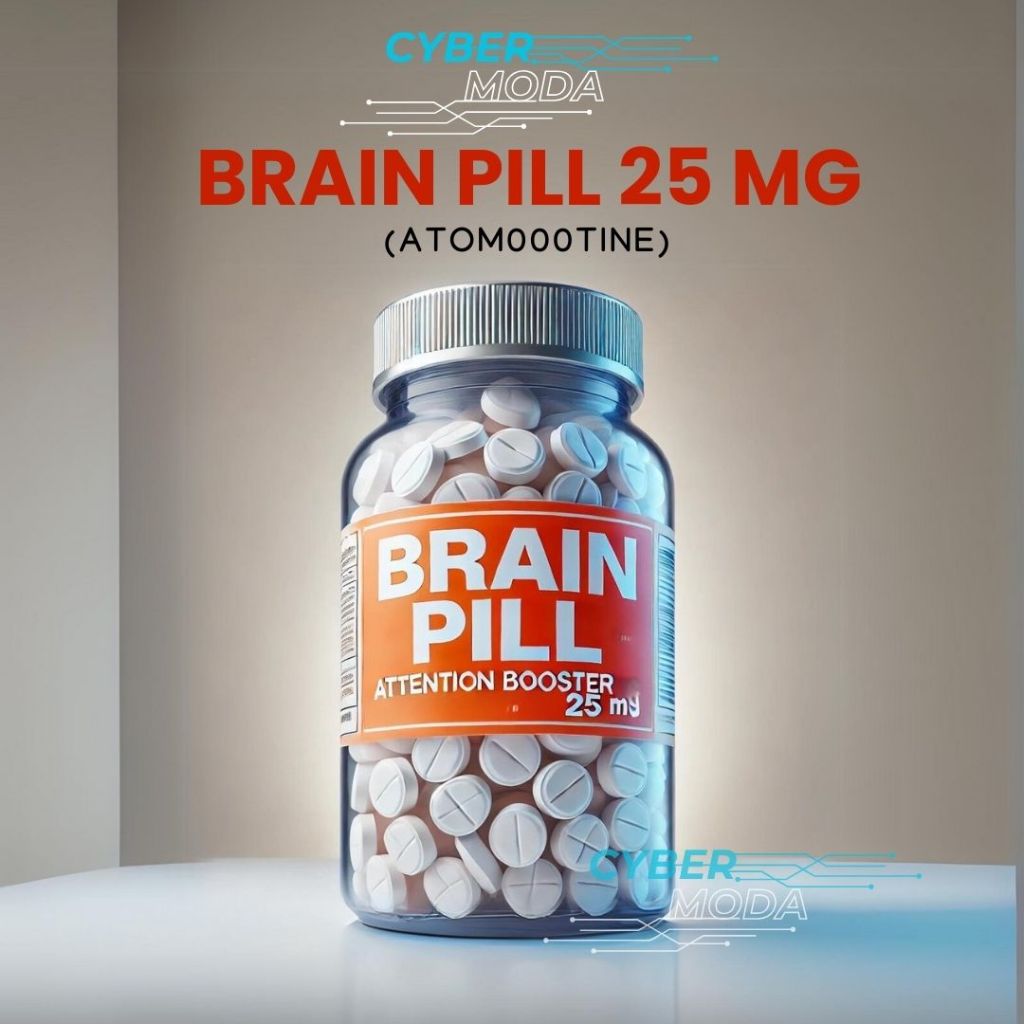Best Vitamins for Immune System Philippines

Best Vitamins for Immune System Philippines
The immune system is a complex network of cells, tissues, and organs that work together to defend the body against harmful invaders. In the Philippines, where environmental factors and lifestyle choices can challenge immune function, prioritizing immune health is paramount. While a balanced diet is foundational, certain vitamins and minerals play particularly crucial roles in supporting and enhancing the immune system. This detailed guide explores the best vitamins for the immune system in the Philippines, highlighting their benefits, sources, recommended dosages, and popular supplement options. Understanding these nutrients and how to incorporate them effectively can empower individuals to proactively bolster their immunity and safeguard their well-being.
Understanding the Immune System
Before delving into specific vitamins, it’s essential to grasp the basics of the immune system. It essentially acts as the body’s internal army, constantly working to identify and neutralize threats.
Key Components of the Immune System
White Blood Cells (Leukocytes): These are the soldiers of the immune system, including lymphocytes (T cells, B cells, NK cells), neutrophils, macrophages, and eosinophils. Each type plays a unique role in identifying and destroying pathogens.
Antibodies (Immunoglobulins): Proteins produced by B cells that recognize and bind to specific antigens (foreign substances), marking them for destruction.
Cytokines: Signaling molecules that coordinate immune responses, regulating inflammation, and activating immune cells.
Complement System: A cascade of proteins that enhance the ability of antibodies and phagocytic cells to clear microbes and damaged cells.
Lymphatic System: A network of vessels and tissues that transports immune cells and helps filter out pathogens.
How Vitamins and Minerals Support Immunity
Vitamins and minerals are essential micronutrients that the body needs to function properly. They play several key roles in supporting the immune system:
Cell Growth and Differentiation: Certain vitamins and minerals are required for the proper growth and development of immune cells.
Antioxidant Protection: Many vitamins and minerals act as antioxidants, protecting immune cells from damage caused by free radicals.
Enzyme Function: Vitamins and minerals serve as cofactors for enzymes involved in immune responses.
Immune Cell Communication: Some vitamins and minerals influence the production and function of cytokines, affecting immune cell communication.
Factors Affecting Immune Function in the Philippines
Several factors prevalent in the Philippines can impact immune health:
Dietary Deficiencies: Despite the abundance of food sources, some Filipinos may experience deficiencies in key vitamins and minerals due to dietary choices or limited access to nutritious foods.
Environmental Pollution: Urban areas often experience high levels of air pollution, which can damage lung tissue and weaken the immune system.
Stress: High levels of stress, whether from work, finances, or personal relationships, can suppress immune function.
Infectious Diseases: The Philippines is a tropical country where certain infectious diseases are more prevalent, placing a constant strain on the immune system.
Top Vitamins and Minerals for Immune Health
Given the challenges to immune function in the Philippines, prioritizing the intake of specific vitamins and minerals is essential. Here are some of the most important nutrients for boosting immunity:
1. Vitamin C: The Immunity Powerhouse
Vitamin C, also known as ascorbic acid, is a potent antioxidant and a crucial nutrient for immune function. It plays a multi-faceted role in supporting the body’s defenses.
Benefits:
Stimulates White Blood Cell Production: Vitamin C enhances the production and activity of lymphocytes and phagocytes, key immune cells that fight infection.
Enhances Antibody Production: Vitamin C supports the production of antibodies, which neutralize pathogens.
Antioxidant Protection: As a powerful antioxidant, vitamin C protects immune cells from damage caused by free radicals, which are produced during immune responses.
Reduces Duration and Severity of Colds: Numerous studies suggest that regular vitamin C intake can reduce the duration and severity of common colds.
Supports Wound Healing: Vitamin C is essential for collagen synthesis, which is important for wound healing and tissue repair.
Sources:
Fruits: Oranges, lemons, guavas, mangoes, papayas, strawberries, pineapples, kiwi.
Vegetables: Bell peppers (especially red and yellow), broccoli, spinach, kale, tomatoes, cabbage.
Recommended Daily Intake:
Adults: 75-90 mg
Smokers: +35 mg (smokers have increased vitamin C needs)
Upper Limit: 2000 mg
Supplement Options:
Ascorbic Acid: The most common and affordable form of vitamin C.
Sodium Ascorbate: A buffered form of vitamin C that is gentler on the stomach.
Calcium Ascorbate: Another buffered form of vitamin C that also provides calcium.
Liposomal Vitamin C: Encapsulated in liposomes for enhanced absorption.
Ester-C: A patented form of vitamin C that is claimed to be more bioavailable and less acidic.
Considerations:
Vitamin C is water-soluble, meaning it is not stored in the body and needs to be consumed regularly.
High doses of vitamin C can cause gastrointestinal upset in some individuals.
Choose non-acidic forms of Vitamin C for people with sensitive stomachs.
2. Vitamin D: The Sunshine Vitamin
Vitamin D, often called the “sunshine vitamin,” is crucial for bone health and immune function. Many Filipinos are deficient in vitamin D due to limited sun exposure.
Benefits:
Modulates Immune Responses: Vitamin D helps regulate both innate and adaptive immune responses, ensuring a balanced immune reaction.
Enhances Antimicrobial Peptide Production: Vitamin D stimulates the production of antimicrobial peptides in immune cells, which help fight off pathogens.
Reduces Inflammation: Vitamin D can help suppress excessive inflammation, which can damage tissues.
Supports T-Cell Function: Vitamin D is essential for the proper function of T cells, a type of immune cell that targets infected cells.
Sources:
Sunlight: The primary source of vitamin D is synthesis in the skin upon exposure to sunlight.
Foods: Fatty fish (salmon, mackerel, tuna), egg yolks, fortified milk and cereals.
Recommended Daily Intake:
Adults: 600 IU (15 mcg)
Adults over 70: 800 IU (20 mcg)
Upper Limit: 4000 IU
Supplement Options:
Vitamin D3 (Cholecalciferol): The most effective form of vitamin D for raising blood levels.
Vitamin D2 (Ergocalciferol): A less effective form of vitamin D that is derived from plants.
Considerations:
Vitamin D is fat-soluble and can be stored in the body, so it’s important to avoid excessive intake.
Sunscreen can block vitamin D synthesis in the skin.
Individuals with darker skin tones require more sun exposure to produce sufficient vitamin D.
Vitamin D deficiency is common, especially among those with limited sun exposure or certain medical conditions.
3. Zinc: The Essential Mineral for Immunity

Zinc is a trace mineral that is essential for numerous bodily functions, including immune function. It is involved in the development and function of immune cells.
Benefits:
Supports White Blood Cell Development: Zinc is required for the proper development and function of lymphocytes and other immune cells.
Enhances Natural Killer Cell Activity: Zinc can boost the activity of natural killer (NK) cells, which target and destroy infected cells.
Antiviral Activity: Zinc has antiviral properties and can help inhibit the replication of certain viruses.
Wound Healing: Zinc plays a role in wound healing and tissue repair.
Reduces Duration and Severity of Colds: Some studies suggest that zinc lozenges can reduce the duration and severity of common colds if taken shortly after the onset of symptoms.
Sources:
Animal Products: Oysters, beef, poultry, pork.
Plant-Based Foods: Pumpkin seeds, nuts (cashews, almonds), whole grains, beans.
Recommended Daily Intake:
Adults: 8-11 mg
Upper Limit: 40 mg
Supplement Options:
Zinc Picolinate: A highly absorbable form of zinc.
Zinc Citrate: Another well-absorbed form of zinc.
Zinc Gluconate: A common form of zinc found in lozenges.
Zinc Oxide: A less absorbable form of zinc.
Considerations:
High doses of zinc can interfere with copper absorption.
Zinc supplements should be taken with food to minimize gastrointestinal upset.
Certain medications can interact with zinc supplements.
4. Vitamin E: The Antioxidant Defender
Vitamin E is a fat-soluble antioxidant that helps protect cells from damage caused by free radicals. It also plays a role in immune function.
Benefits:
Antioxidant Protection: Vitamin E neutralizes free radicals, protecting immune cells from oxidative damage.
Enhances Immune Cell Function: Vitamin E can improve the function of T cells and other immune cells.
Supports Antibody Production: Vitamin E helps stimulate the production of antibodies.
Reduces Inflammation: Vitamin E has anti-inflammatory properties.
Sources:
Nuts and Seeds: Almonds, sunflower seeds, peanuts.
Vegetable Oils: Wheat germ oil, sunflower oil, soybean oil.
Green Vegetables: Spinach, broccoli.
Recommended Daily Intake:
Adults: 15 mg (22.4 IU)
Upper Limit: 1000 mg (1500 IU)
Supplement Options:
Alpha-Tocopherol: The most active form of vitamin E in the body.
Mixed Tocopherols: A combination of different forms of vitamin E.
Considerations:
Vitamin E is fat-soluble and can be stored in the body, so it’s important to avoid excessive intake.
High doses of vitamin E can increase the risk of bleeding.
Certain medications can interact with vitamin E supplements.
5. Vitamin A: The Epithelial Protector (Betacarotene)
Vitamin A is essential for maintaining healthy epithelial tissues, which act as barriers against pathogens. Betacarotene is a precursor to vitamin A that the body converts as needed.
Benefits:
Maintains Epithelial Integrity: Vitamin A helps keep the skin and mucous membranes (lining of the respiratory and digestive tracts) healthy, providing a barrier against infection.
Supports Immune Cell Development: Vitamin A is important for the development and function of immune cells, including lymphocytes.
Enhances Antibody Responses: Vitamin A can improve antibody responses to vaccines and infections.
Reduces Severity of Respiratory Infections: Some studies suggest that vitamin A supplementation can reduce the severity of respiratory infections, especially in children.
Sources:
Preformed Vitamin A (Retinol): Liver, dairy products, eggs.
Betacarotene: Carrots, sweet potatoes, spinach, kale, mangoes, papayas.
Recommended Daily Intake:
Adults: 700-900 mcg RAE (Retinol Activity Equivalents)
Upper Limit: 3000 mcg RAE
Supplement Options:
Retinyl Palmitate: A common form of vitamin A in supplements.
Betacarotene: Often found in multivitamin supplements.
Considerations:
Vitamin A is fat-soluble and can be stored in the body, so it’s important to avoid excessive intake, especially from preformed vitamin A (retinol).
Pregnant women should be particularly cautious about vitamin A intake, as high doses can cause birth defects.
Betacarotene is generally considered safe, as the body only converts it to vitamin A as needed.
Other Immune-Boosting Nutrients
In addition to the top vitamins and minerals, several other nutrients can support immune health:
Selenium: An essential trace mineral that acts as an antioxidant and supports immune cell function.
Iron: Necessary for the growth and function of immune cells, but excessive iron can be harmful.
Probiotics: Beneficial bacteria that support gut health, which is closely linked to immune function.
Omega-3 Fatty Acids: Anti-inflammatory fats that can help modulate immune responses.
Choosing the Right Supplements
When selecting immune-boosting supplements in the Philippines, consider the following factors:
Quality: Choose reputable brands that use high-quality ingredients and follow good manufacturing practices (GMP).
Form: Opt for forms of vitamins and minerals that are easily absorbed by the body.
Dosage: Follow recommended dosages and avoid excessive intake.
Interactions: Be aware of potential interactions between supplements and medications.
Here is a great source for nootropics and health supplements:

View Product
Consult a Healthcare Professional: Talk to a doctor or registered dietitian before starting any new supplement regimen, especially if you have underlying health conditions.
Incorporating Immune-Boosting Strategies into Your Lifestyle
While vitamins and minerals are crucial, they are most effective when combined with other healthy lifestyle habits:
Balanced Diet: Focus on consuming a variety of fruits, vegetables, whole grains, lean proteins, and healthy fats.
Regular Exercise: Engage in moderate-intensity exercise most days of the week to boost immune function.
Adequate Sleep: Aim for 7-8 hours of sleep per night to support immune health.
Stress Management: Practice stress-reducing techniques such as meditation, yoga, or spending time in nature.
Hygiene: Wash your hands frequently and avoid touching your face to prevent the spread of germs.
Vaccinations: Stay up-to-date on recommended vaccinations to protect against infectious diseases.
Popular Supplement Brands in the Philippines
Several reputable supplement brands are available in the Philippines, offering a range of immune-boosting products:
Unilab: A local pharmaceutical company that offers a variety of vitamins and minerals.
ATC Healthcare: Known for its affordable and accessible supplements.
Poten-cee: A popular brand of vitamin C supplements.
Myra E: A well-known brand of vitamin E supplements.
NOW Foods: An international brand that offers a wide range of high-quality supplements.
Conclusion
Supporting the immune system is an ongoing process that requires a holistic approach. By prioritizing the intake of key vitamins and minerals, adopting healthy lifestyle habits, and consulting with healthcare professionals, individuals in the Philippines can proactively enhance their immunity and protect their well-being. While this guide provides valuable information, it is not a substitute for personalized medical advice. Always consult with a doctor or registered dietitian to determine the best course of action for your individual needs.
Best Vitamins for Immune System Philippines
Maintaining a strong immune system is vital, particularly in a tropical environment like the Philippines, where infectious diseases are prevalent. Certain vitamins and minerals play a crucial role in supporting immune function. Supplementation, along with a balanced diet, contributes to overall wellness. Let’s delve into the best vitamins and nutrients for boosting immunity in the Philippines.
Understanding the Immune System
The immune system defends the body against harmful invaders like bacteria, viruses, fungi, and parasites. This complex network involves various cells, tissues, and organs working synergistically. A well-functioning immune system recognizes and eliminates threats, keeping us healthy. Key components of the immune system include:
White blood cells (Leukocytes): These cells identify and neutralize pathogens.
Antibodies: Proteins that target and mark pathogens for destruction.
Lymphatic system: A network of vessels and tissues that filters lymph fluid and houses immune cells.
Skin and mucous membranes: Physical barriers that prevent pathogens from entering the body.
Nutritional deficiencies can weaken the immune system, making us more susceptible to infections. Therefore, adequate intake of essential vitamins and minerals is crucial for optimal immune function.
Top Vitamins and Minerals for Immunity
Certain vitamins and minerals are especially important for supporting a healthy immune system. Making sure you get enough of these nutrients is key.
1. Vitamin C (Ascorbic Acid)
Vitamin C is a powerful antioxidant and a well-known immune booster. It plays several important roles:
Stimulates white blood cell production: Vitamin C helps produce lymphocytes and phagocytes, which fight infections.
Enhances white blood cell function: It improves the ability of these cells to move, engulf pathogens, and generate oxidative bursts to kill microbes.
Antioxidant protection: Vitamin C neutralizes harmful free radicals, protecting immune cells from damage.
Supports barrier function: Vitamin C helps maintain the integrity of epithelial barriers, like the skin and mucous membranes, preventing pathogen entry.
Wound healing: Vitamin C is essential for collagen synthesis, promoting wound healing and tissue repair.
Sources: Citrus fruits (oranges, lemons, grapefruits), berries (strawberries, blueberries), kiwifruit, guava, papaya, bell peppers, broccoli, and leafy green vegetables are excellent sources of Vitamin C.
Supplementation: In the Philippines, Vitamin C supplements are widely available in various forms, including tablets, capsules, chewables, and effervescent formulations. Look for supplements containing at least 500mg of Vitamin C for optimal immune support. Buffered or non-acidic forms of Vitamin C may be gentler on the stomach. Ethical Nutrients Extra C, as previously mentioned, is a popular choice known for its high quality and bioavailability.
2. Vitamin D (Calciferol)
Vitamin D plays a critical role in both innate and adaptive immunity.
Modulates immune responses: Vitamin D regulates the activity of immune cells, preventing excessive inflammation and tissue damage.
Enhances antimicrobial peptide production: It stimulates the production of antimicrobial peptides, like cathelicidin, which directly kill bacteria, viruses, and fungi.
Supports T cell function: Vitamin D promotes the development and function of T cells, which are essential for fighting viral infections and cancer.
Regulates B cell function: It influences the production of antibodies by B cells, enhancing humoral immunity.
Reduces inflammation: Vitamin D helps suppress inflammatory cytokines, preventing chronic inflammation that can impair immune function.
Sources: Sunlight exposure is the primary source of Vitamin D. However, many Filipinos may be deficient due to limited sun exposure, especially those living in urban areas or spending most of their time indoors. Fatty fish (salmon, tuna, mackerel), egg yolks, and fortified foods (milk, cereals) also contain Vitamin D, but often in insufficient amounts.
Supplementation: Vitamin D3 (cholecalciferol) is the preferred form for supplementation. The recommended daily intake varies depending on individual needs and Vitamin D levels. A common dosage is 1000-2000 IU per day, but some individuals may require higher doses under medical supervision. Many multivitamins contain Vitamin D, or it can be taken as a standalone supplement.
3. Zinc
Zinc is an essential mineral involved in numerous biochemical processes, including immune function.
Supports white blood cell development and function: Zinc is required for the maturation and activity of lymphocytes, neutrophils, and natural killer cells.
Antioxidant properties: Zinc protects immune cells from oxidative stress and damage.
Enhances barrier function: It helps maintain the integrity of skin and mucous membranes, preventing pathogen entry.
Regulates cytokine production: Zinc influences the production of cytokines, modulating the inflammatory response.
Antiviral activity: Some studies suggest that zinc may have direct antiviral effects, inhibiting viral replication.
Sources: Oysters, beef, poultry, pumpkin seeds, cashews, beans, and whole grains are good sources of zinc.
Supplementation: Zinc supplements are available in various forms, including zinc gluconate, zinc sulfate, and zinc picolinate. Zinc picolinate is often considered to be better absorbed. A typical dosage is 15-30mg per day. High doses of zinc can interfere with copper absorption, so it’s important to maintain a balanced intake of both minerals. Cecon Plus, as previously mentioned, is a popular option in the Philippines that combines Vitamin C and zinc.
4. Vitamin E
Vitamin E is a powerful antioxidant that protects cells from damage caused by free radicals.
Antioxidant protection: Vitamin E neutralizes free radicals, protecting immune cells from oxidative stress.
Enhances immune cell function: It improves the activity of T cells, B cells, and natural killer cells.
Supports barrier function: Vitamin E helps maintain the integrity of cell membranes, including those of epithelial cells.
Modulates inflammation: It can help regulate the inflammatory response, preventing excessive inflammation.
Sources: Vegetable oils (sunflower, safflower, wheat germ), nuts (almonds, peanuts), seeds (sunflower seeds), and leafy green vegetables are good sources of Vitamin E.
Supplementation: Vitamin E supplements are available in various forms, including alpha-tocopherol, which is the most active form in the body. The recommended daily intake is around 15mg. Conzace, as previously mentioned, is a multivitamin and mineral supplement popular in the Philippines that contains Vitamin E, along with other immune-boosting nutrients.
5. Vitamin A (Retinol) and Beta-Carotene
Vitamin A is essential for maintaining the integrity of epithelial barriers and supporting immune cell function.
Supports barrier function: Vitamin A helps maintain the health of skin, mucous membranes, and other epithelial tissues, preventing pathogen entry.
Enhances immune cell function: It supports the development and activity of lymphocytes, neutrophils, and natural killer cells.
Regulates cytokine production: Vitamin A influences the production of cytokines, modulating the inflammatory response.
Antioxidant properties: Beta-carotene, a precursor to Vitamin A, has antioxidant properties that protect cells from damage.
Sources: Preformed Vitamin A (retinol) is found in animal products, such as liver, dairy products, and eggs. Beta-carotene, which the body converts to Vitamin A, is found in colorful fruits and vegetables, such as carrots, sweet potatoes, spinach, and mangoes.
Supplementation: Vitamin A supplements are available in various forms, including retinol and retinyl palmitate. Beta-carotene supplements are also available. The recommended daily intake is around 900 mcg for men and 700 mcg for women. Excessive intake of preformed Vitamin A can be toxic, so it’s important to follow recommended dosages.
6. Selenium
Selenium is a trace mineral that plays a crucial role in immune function.
Antioxidant properties: Selenium is a component of several antioxidant enzymes, which protect cells from damage.
Enhances immune cell function: It supports the activity of T cells, B cells, and natural killer cells.
Regulates inflammation: Selenium helps modulate the inflammatory response, preventing excessive inflammation.
Supports thyroid function: Selenium is essential for thyroid hormone production, which indirectly affects immune function.
Sources: Brazil nuts, seafood (tuna, sardines), meat, poultry, and whole grains are good sources of selenium.
Supplementation: Selenium supplements are available in various forms, including selenomethionine and sodium selenite. A typical dosage is 55-200 mcg per day.

View Product
The Importance of Gut Health
A significant portion of the immune system resides in the gut. Maintaining a healthy gut microbiome is crucial for optimal immune function.
Supports immune cell development: The gut microbiome influences the development and maturation of immune cells.
Enhances barrier function: It helps maintain the integrity of the gut lining, preventing the leakage of harmful substances into the bloodstream.
Modulates inflammation: The gut microbiome produces metabolites that regulate inflammation.
Competes with pathogens: Beneficial gut bacteria compete with harmful pathogens for nutrients and space, preventing infections.
Strategies for improving gut health:
Probiotics: Probiotic supplements contain live beneficial bacteria that can help restore balance to the gut microbiome.
Prebiotics: Prebiotics are non-digestible fibers that feed beneficial gut bacteria.
Fiber-rich diet: A diet rich in fruits, vegetables, and whole grains provides prebiotics and supports a healthy gut microbiome.
Fermented foods: Fermented foods, such as yogurt, kimchi, and sauerkraut, contain probiotics.
Lifestyle Factors for a Strong Immune System
In addition to vitamins and minerals, several lifestyle factors can significantly impact immune function.
Adequate sleep: Aim for 7-8 hours of quality sleep per night. Sleep deprivation weakens the immune system.
Stress management: Chronic stress suppresses immune function. Practice stress-reducing techniques, such as meditation, yoga, or spending time in nature.

View Product
Regular exercise: Moderate exercise boosts immune function. Avoid overexertion, which can temporarily suppress immunity.
Healthy diet: Consume a balanced diet rich in fruits, vegetables, whole grains, and lean protein. Limit processed foods, sugary drinks, and unhealthy fats.
Hydration: Drink plenty of water to stay hydrated. Dehydration can impair immune function.
Avoid smoking and excessive alcohol consumption: These habits weaken the immune system.
Considerations for Supplementation in the Philippines
Consult a healthcare professional: Before starting any new supplement regimen, consult with a doctor or registered dietitian. They can assess your individual needs and recommend appropriate dosages.
Choose reputable brands: Select supplements from reputable brands that have been tested for quality and purity.
Be aware of potential interactions: Some supplements can interact with medications. Inform your doctor about all supplements you are taking.
Start with a low dose: Begin with a low dose of each supplement and gradually increase as tolerated.
Monitor for side effects: Pay attention to any side effects and discontinue use if they occur.
Popular Immune-Boosting Supplements in the Philippines
Many supplements are marketed for immune support in the Philippines. Here are a few popular options:
Redoxon Triple Action: Combines Vitamin C, Vitamin D, and zinc.
Cecon Plus Multivitamins + Zinc: Contains Vitamin C and zinc.
Conzace Multivitamins+Minerals: Includes Vitamins A, C, E, and zinc.
Enervon: Contains Vitamin C, B vitamins, and minerals.
Poten-Cee: Vitamin C supplement.
Potential Scenarios in the Philippines
Flu season: During flu season, consider increasing your intake of Vitamin C, Vitamin D, and zinc to help protect against infection.
Travel: When traveling, especially to areas with poor sanitation, boost your immune system with supplements and maintain good hygiene practices.
Stressful periods: During times of high stress, support your immune system with stress-reducing techniques and adequate nutrition.
Underlying health conditions: If you have an underlying health condition that affects your immune system, consult with your doctor about appropriate supplementation.
By understanding the importance of various vitamins and minerals, adopting healthy lifestyle habits, and considering appropriate supplementation, you can significantly enhance your immune system and protect yourself from infections in the Philippines. Remember that a holistic approach, combining nutrition, lifestyle, and medical advice, is the most effective way to maintain optimal health.





